Class warfare as teachers blast ‘gimmicky’ plans to block struggling students from teaching degrees
The teachers’ union has attacked ‘gimmicky’ Morrison government plans to force school leavers to pass literacy and numeracy tests before enrolling in teaching degrees.
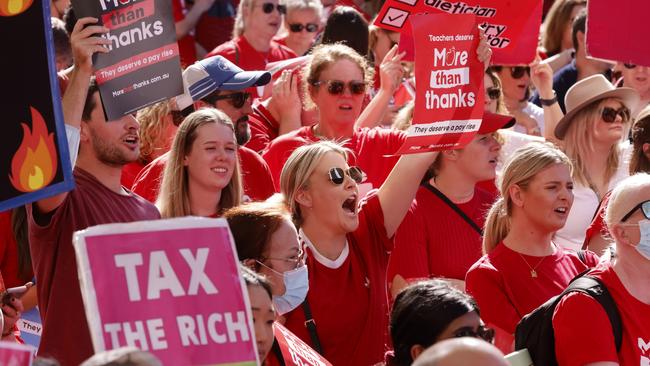
Angry teachers have attacked Coalition plans to “dumb down’’ teacher training, despite one in 10 graduates flunking a basic literacy and numeracy test.
Australian Education Union president Correna Haythorpe said the union would “fiercely defend initial teacher education from any Morrison Government attacks on hard won quality standards’’.
Acting federal Education Minister Stuart Robert has announced plans to halve the time it takes professionals with university degrees to retrain as teachers, with a graduate diploma of education to be cut from two years to one.
He said a re-elected Coalition Government would spend $40 million for Teach for Australia to retrain 700 professionals, including engineers, lawyers, accountants and IT specialists, to teach in hard-to-staff schools.
The Coalition wants to bring forward the literacy and numeracy test that student teachers are required to pass before graduating, to force them to pass the test before they enrol in a university teaching degree.
And it has pledged $10.8m to develop new micro-credentials to upskill existing teachers in teaching reading through phonics, explicit teaching methods, and managing disruptive students.
Ms Haythorpe attacked the Coalition plan to “dumb down initial teacher education through funding for gimmicky programs like Teach for Australia, micro credentials in classroom management, phonics and explicit instruction and a return to one year graduate teaching qualifications.’’
“The AEU will not stand for it,’’ she said.
“We will fiercely defend the quality and standards in initial teacher education we fought for over many decades.
“The announced funding commitments, if delivered, would erode the excellence parents and the community rightly expect from teachers.’’
Mr Robert said he was concerned that at least a quarter of maths teachers in Australia were not qualified to teach the subject, and that one in 10 university graduates in education courses were failing the literacy and numeracy test that was required to graduate.
As 15,000 angry NSW teachers marched in the streets demanding pay rises of up to 7.5 per cent on Wednesday, he announced $40m in extra funding to recruit hundreds more engineers, lawyers, tech experts and tradies into classrooms.
Mr Robert said 700 more mid-career professionals would be retrained through the Teach for Australia program, to enter classrooms next year and in 2024 if the Coalition were re-elected.
He said he was concerned that at least a quarter of maths teachers in Australia were not qualified to teach the subject, and that one in 10 university graduates in education courses were failing the literacy and numeracy test that was required to graduate.
Mr Robert said his 12-year-old son had been able to answer some of the maths questions that 10 per cent of university graduates got wrong. “I was reading out example questions to our sons at the weekend and my boys were answering them,’’ he said.
“The test is designed for the top 30 per cent of (school leavers) and we can’t have the people looking to teach our students failing it.’’
Sample questions include: “This year a teacher spent $383.30 on stationery. Last year the teacher spent $257.85 on stationery. How much more did the teacher spend this year than last year?’’
Many of the literacy questions are multiple choice, to check comprehension and identify spelling errors.
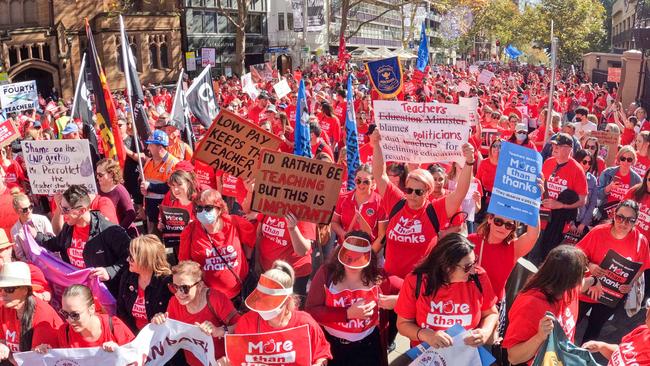
Mr Robert said a re-elected Morrison government would seek consensus from the states and territories to mandate that students pass the Literacy and Numeracy Test for Initial Teacher Education Students (LANTITE) as a condition of starting their university degree.
Under existing arrangements, undergraduate teachers can sit the test at any time during their degree, but cannot graduate until they pass. But Mr Robert said university education faculties should only enrol students who had already passed the test.
“Ten per cent of our teaching graduates are failing on basic literacy and numeracy,’’ he said. “Ten per cent (of those) are failing it not once, not twice, but three times.’’
Mr Robert also announced $13.4m to change teacher accreditation standards, to halve the time it takes mid-career professionals with a university degree to retrain as school teachers.
The federal government would need state and territory approval to change the graduate diploma of education from two years to one.
Mr Robert said two years of retraining was a barrier for workers wanting to switch careers into teaching.
“One year to learn the pedagogy of teaching at university is enough,’’ he said. “You could get a whole bunch of older tradies who aren’t on the tools anymore to do a one-year graduate diploma and teach industrial art (in schools).’’
A re-elected Morrison government would also fund 60 workers to retrain as teachers through La Trobe University’s Nexus program, which combines a Master of Teaching with part-time work as “paraprofessional teachers’’ in hard-to-staff schools in Victoria.
And $10.8m would be spent to develop new micro-credentials to upskill existing teachers in teaching reading through phonics, explicit teaching methods, and managing disruptive students.
Mr Robert – who previously criticised “dud’’ teachers in public schools – yesterday praised state school teachers for their dedication during the pandemic.
He refused to comment on NSW public school teachers’ demands for a pay rise of between 5 per cent and 7.5 per cent, after 15,000 teachers marched in protest rallies on Wednesday.
The NSW government has already given teachers a 2.5 per cent pay rise this year, in line with a salary cap for public servants, but has flagged a further wage rise in the upcoming state budget.
NSW Teachers’ Federation president Angelo Gavrielatos said low pay of between $73,000 and $126,000 a year was causing teacher shortages.
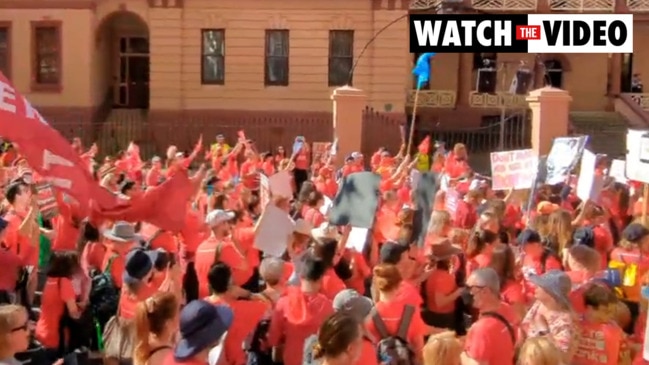
“Thousands of students are being left in playgrounds with only minimal supervision on a regular basis,’’ Mr Gavrielatos said. “Despite our best efforts, hundreds of classes are being combined every day.
“Acting on uncompetitive salaries and unsustainable workloads is the only way to stop more teachers leaving and to attract the people into the profession we need to fix the shortages.’’
NSW Education Minister Sarah Mitchell said she had asked the state Education Department to defer the wages component of a NSW Industrial Relations Commission negotiating process due to start on May 9.
“The gvernment has been very clear that it intends to review the wages policy for public sector staff as part of the budget process,’’ Ms Mitchell said.
“The union has chosen politics over student learning by striking today. Students have already experienced unprecedented disruption over the past 2½ years due to the pandemic, fires, floods and drought and every day out of the classroom has an impact.’’
Mr Robert said the federal government had more than doubled spending on public schools since 2013, yet educational standards had fallen.
“The results are going backwards year after year despite all this money,’’ he said.
“It’s no longer about funding – it’s a question of teacher quality and classroom environments.’’
Scott Morrison said on Wednesday that cabinet minister Alan Tudge – who stood aside last year pending an inquiry that cleared him of wrongdoing after his affair with former staffer Rachelle Miller – would return as education minister if the Coalition won the federal election.
“If he‘s prepared, if he’s available to come back into the ministry, then he will,’’ the Prime Minister said.
“He decided to stand aside for his own personal reasons and should he be in a position to be able to step up again, then I would welcome him back.’’
Anthony Albanese declared on Wednesday that Mr Morrison had a minister “in witness protection who can’t appear anywhere’’.


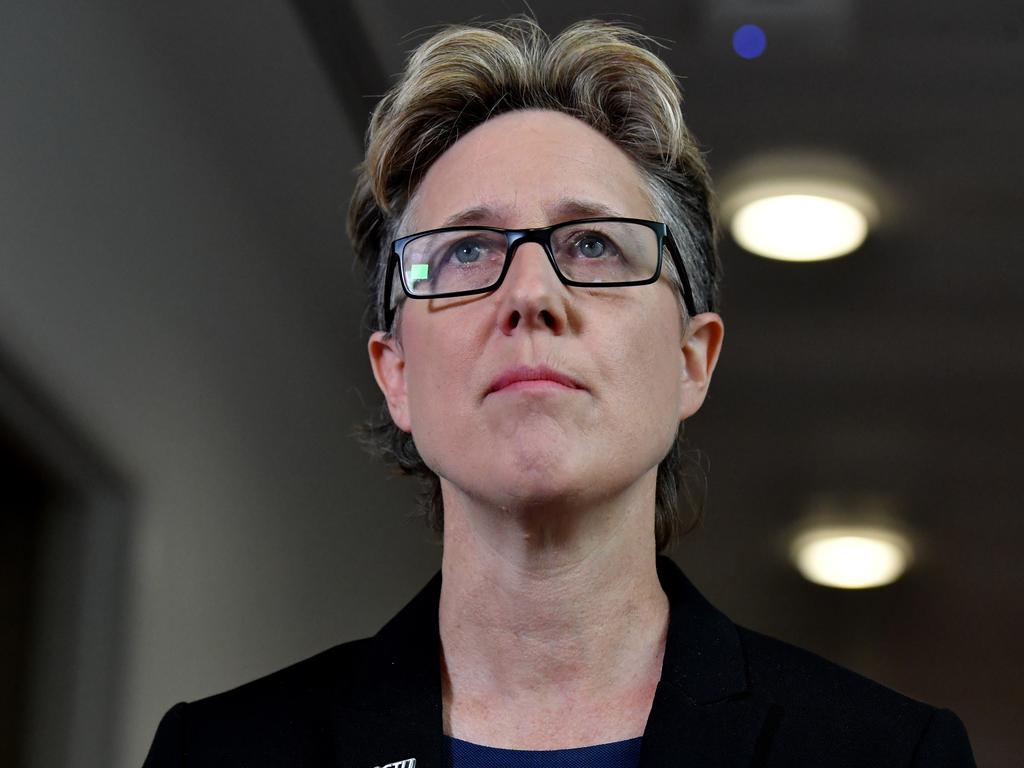
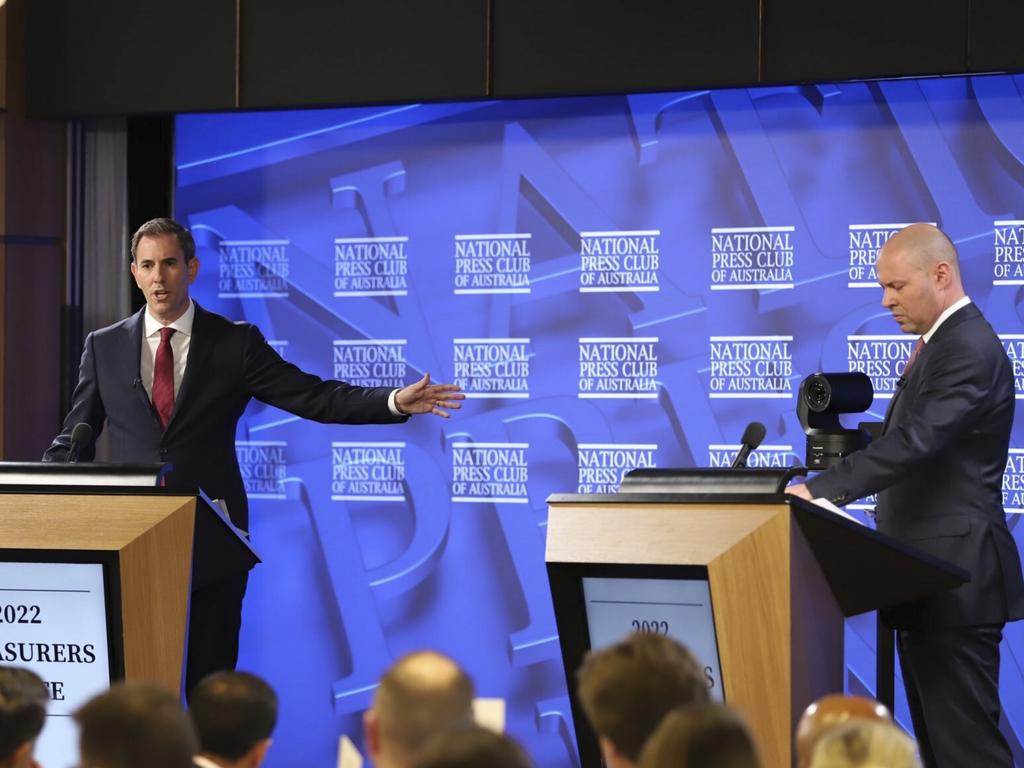


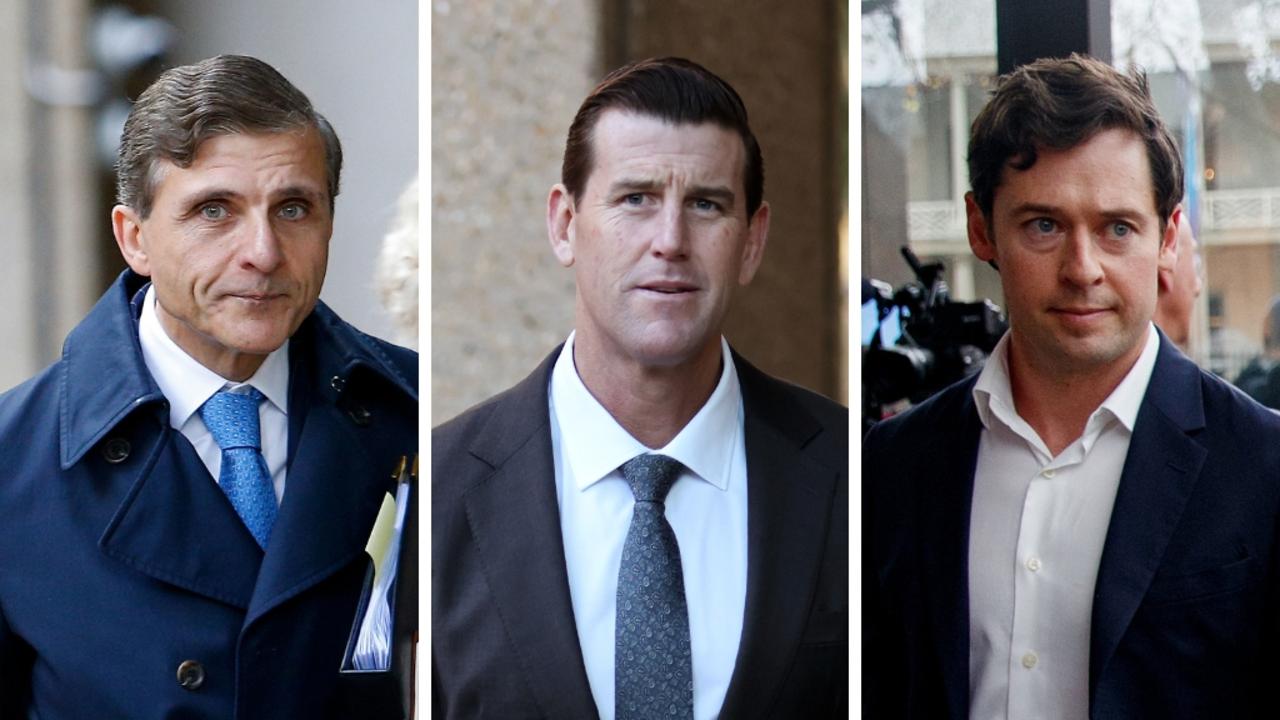

To join the conversation, please log in. Don't have an account? Register
Join the conversation, you are commenting as Logout